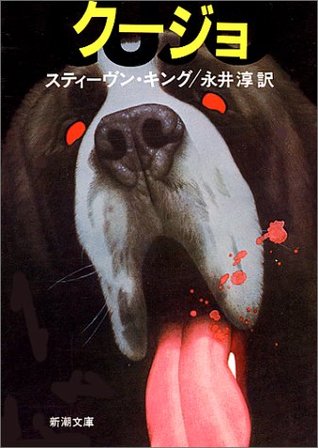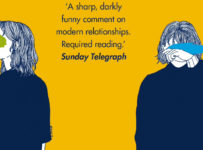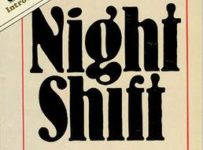
In the early 1980s, Stephen King had death on the mind. Moreso than usual. Cujo is the second in what is at least a loose trilogy of meditations on grief and mortality and, given that it is famously the novel that King does not remember writing at all, it speaks to something in his subconscious. It is a pity on all counts, because this killer dog story is one of King's harder hitting works, emphasising his skill with the mundane. With no supernatural elements in play, and without the deep-seated nihilism that infected Roadwork, Cujo is a dark work with a sparkling undercurrent.
In Castle Rock, a town still haunted by a serial killer (whose exploits were covered, briefly, in The Dead Zone), lives a giant Saint Bernard called Cujo. One day Cujo gets bitten by a bat, and rabies sets in. As the humans in Cujo's life deal with their own issues — job woes, dissatisfying marriages — the madness sets in, and the dog begins to foam.
More than a work of terror, Cujo is a profoundly sad novel. Cujo is, as King never fails to tell the reader, a good dog. Nothing that happens after Cujo is bitten by the bat is the fault of the beast himself and, thanks to carefully placed passages from the dog's perspective, we can see the disintegration of his mindset. It is some of King's more sympathetic work, and we come to know Cujo as intimately as any character in the book.
The Trentons and Cambers, whose own dramas inform the forward motion around which Cujo revolves, are families from opposite ends of the Castle Rock hierarchy. When people think of Cujo, they don't think "it's the one about the advertising exec who has to quash a scandal,†or "it's the one about a woman working up the courage to liberate herself and her son from under the thumb of her abusive husbandâ€, but both of these are accurate descriptors.
The Trenton advertising storyline is the one that would drive a more straightforward family drama, while the Camber domestic cycle is the literary element of the novel. They each have their own recommendable elements, although the advertising accoutrements seem that they were more interesting to King than they would have been to any Constant Reader — this isn't exactly a proto-Mad Men. The Camber family are exquisitely drawn, with Charity being one of the archetypal empathetic wife character that King is so good at bringing to life. You may not be able to have a Trenton novel without the intervention of a rabid dog, but very little would need to be done to make a dog free novel about the Cambers.
King's most tense works are those where the reader is frustrated by their own passivity; there is no way to help these people who are in so desperately in need of assistance. Cujo is about what happens when you put off something because if you do anything about it then it might get in the way of what you really want. Cujo is a cyclone of easily preventable misfortunes that coalesce around the rampage of an otherwise blameless creature. It may seem frustrating at times, but Cujo never collapses under the weight of its own coincidence. When a novel reads like a series of credibly bad events rather than an author playing havoc with their characters' lives, it seems not cruel so much as inevitable.
Of course, Cujo is a product of 1981, the sort of novel that would take a lot of effort to make credible in a 21st century setting. If any of these characters had mobile phones, ninety percent of the situations described herein would not occur at all; if they weren't pre-emptively thwarted, a simple phone call would quash them as soon as they arrived.
By the time that Cujo finishes, it is difficult not to be moved by the grace and delicacy with which King handles his conclusion. It is easy to get sentimental about an animal, true, but we know Cujo almost as if he were our own dog, so cruelly brought down by blameless bats. The Saint Bernard may be the star of the show — and it would be a disservice to fear him rather than mourn what he has become — but King works enough magic that we care about the final destinations of the Trentons and Cambers. Bad things happen, and not everyone survives, but King at last allows a glimmer of hope for the future. Cujo is many things, but it is not pessimistic.
Featuring some of King's finest character work laced with quiet tragedy, Cujo is so much more than the "evil dog†book its reputation suggests. An interlocking family drama, a perfect cascade of failures, and a book about what has to come after everything else has failed, King may not be able to remember writing Cujo, but it is a deeply felt piece that deserves to endure.



